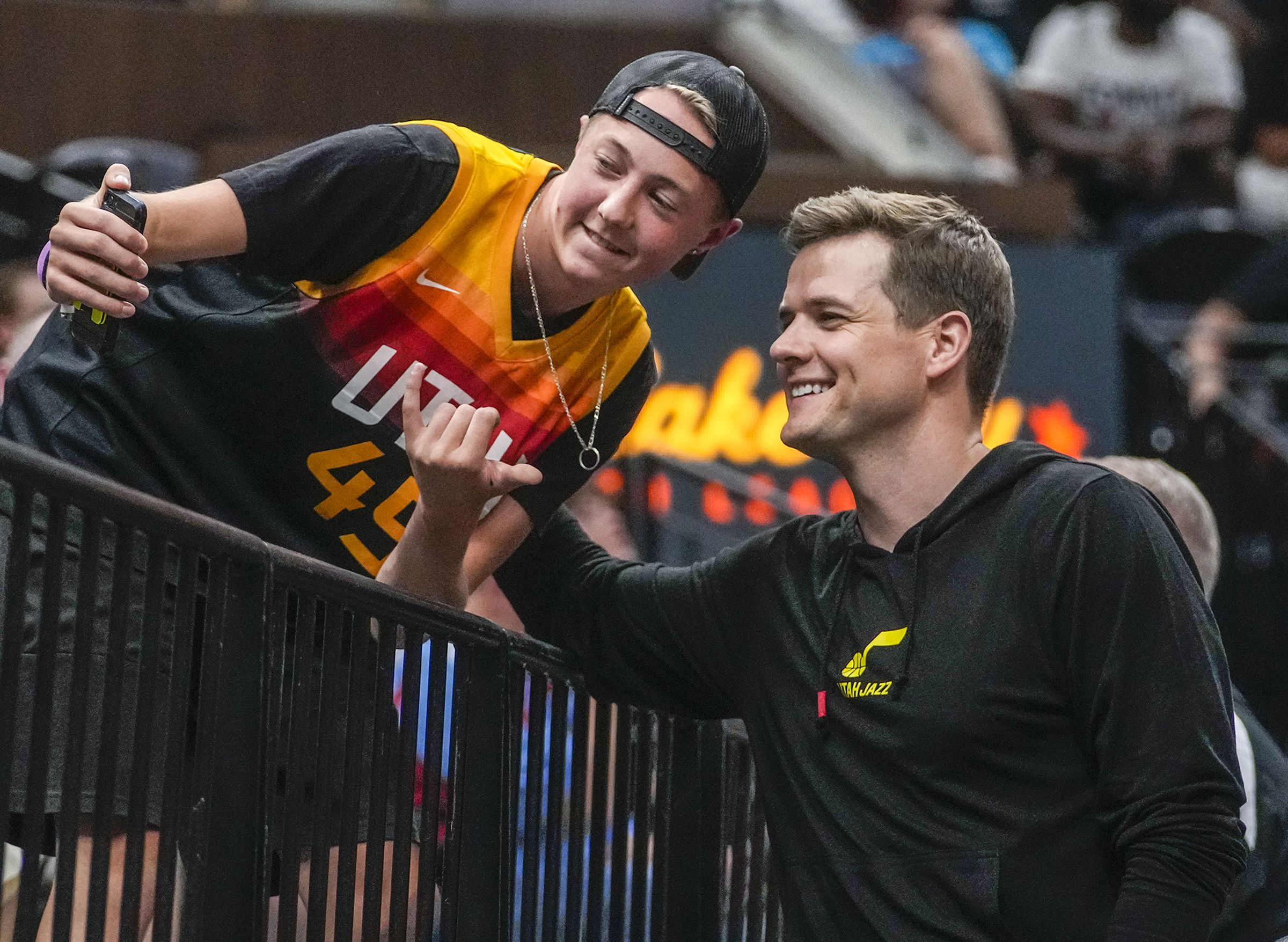ESPN news: Will Hardy after two disastrous seasons, will teach you a lesson of your life.

He’s excelled in player development and personality management, but he hasn’t had the opportunity to show off his coaching abilities.
Everything for the Utah Jazz changed two years ago, and a major factor in that transition was the hiring of Will Hardy as the team’s first head coach. Hardy was the youngest head coach in the NBA at the time.
Hardy has been employed by the NBA since 2010, but nothing was known about his coaching philosophy or how he would perform in a leadership role, despite the fact that he had been an assistant coach since 2016 (first in San Antonio, then in Boston). Unfortunately, there are still a lot of unanswered questions after two years, which makes assessing Hardy extremely difficult.
Will Hardy: Give up
It’s no secret that the Utah Jazz have been putting more emphasis on developing their young players than they are on their current level of success. The Jazz front office has stated unequivocally that they want Will Hardy to lead the team to success, but they have also taken steps to ensure that it is highly unlikely. It’s difficult for him to demonstrate his coaching prowess in the Jazz’s current atmosphere because of trades, player rests, and roster manoeuvres.
Hardy knew going into the Jazz position that the team would be rebuilding and that a big part of his job description for the first few years in Utah would involve development. Thus far, Hardy has excelled in anything he has been assigned to complete.
/cdn.vox-cdn.com/uploads/chorus_asset/file/24197383/1438728137.jpg)
Hardy has demonstrated his abilities as a leader and communicator for the Jazz in numerous contexts. Primarily, he made Lauri Markkanen available, enabling the Finnish footballer to excel in a more significant capacity than he had previously experienced. Players like Collin Sexton and Jordan Clarkson have been urged to adopt new positions and alter their game strategies by him. Young players and those who have proven themselves in practice have been given opportunities by him, he has gained the respect of his players by demonstrating that he values them as individuals above all else and has kept morale high despite two losing seasons.
Throughout Hardy’s first two seasons as head coach, we have undoubtedly learned certain things that will be crucial going forward. He is blunt in his criticism, does not sugarcoat issues, and will not watch players act the part. He expects the players to play with attention and intensity even when they are aware that they have little chance of winning and the deck is stacked against them.
When they take the court, Hardy wants his players to understand the luxury they have, and regardless of the situation, he demands a certain amount of effort from them. He holds players accountable without berating them for unavoidable errors or holding them to unattainable standards. For the athletes that can handle it, he applies some tough love, and he makes sure that everyone is aware of their position.
/cdn.vox-cdn.com/uploads/chorus_asset/file/18436269/usa_today_10161350.jpg)
However, we are limited in our ability to assess Hardy’s abilities as a coach when it comes to game planning, outwitting the opposition, or taking advantage of a team’s shortcomings. That’s not Hardy’s fault at all. Additionally, there have been hints of his potential shown in the initial part of his rookie campaign, when he led his team to several unexpected victories and had a more fully loaded lineup. However, the front management changed the lineup fast, giving Hardy support during the second half of that campaign.
When Hardy is handed a roster of players and expected to perform well in the win column rather than merely tread water, there will come a moment when his coaching prowess will be put to the test. It’s simple to state that Hardy has excelled in the role assigned to him and has greatly aided in the development of some Jazz players. However, at this time, it would be incorrect to declare that Hardy is a good or horrible coach because, quite honestly, he hasn’t had a chance to perform the job to the best of his abilities.



